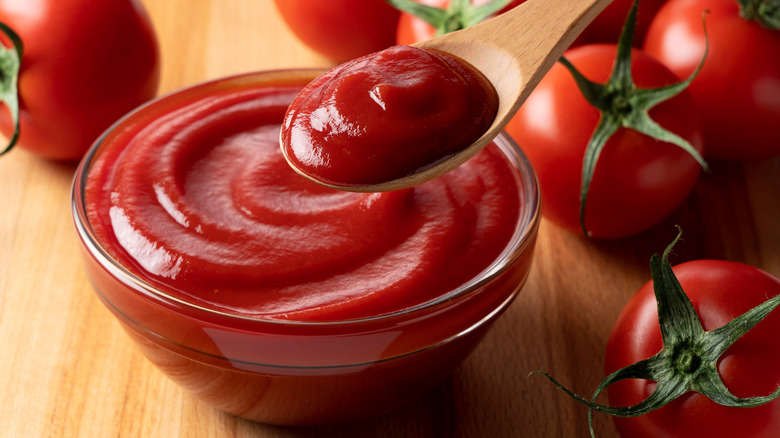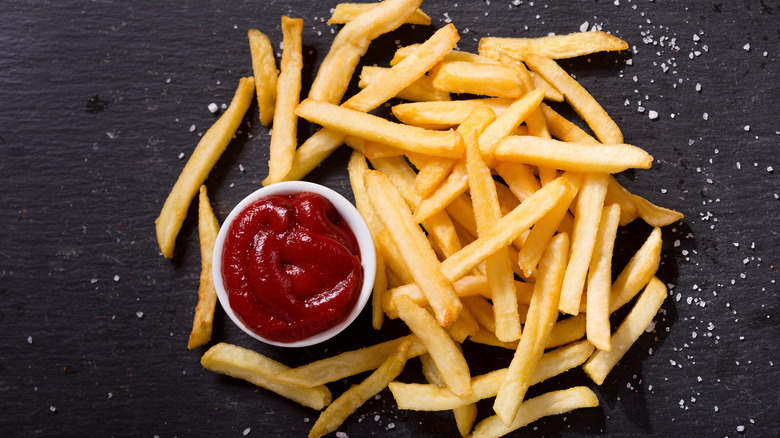Why You Won't Find Ketchup In French Schools
Back in 2011, France banned ketchup in its school cafeterias; the only exception was if it was being served with fries. The media was quick to run with the story of the snooty French and their peculiar gastronomic rules.
But those rules are embedded into French culture. Good luck being served ketchup in any Parisian café or restaurant unless ordering Pommes Frittes. Snippets of Paris claims that requesting ketchup for anything but those french fries at a bistro is akin to culinary treason. (Same with making substitutions of any kind when ordering. It was French chef Escoffier, after all, who created the Brigade de Cuisine.)
France takes pride in their food and the culture surrounding it. The Guardian reports that the French eat three meals daily at strict times, and it takes nearly 2 ½ hours to get through a meal, unlike their American counterparts who zip through them. The French see meals as a communal time, with food associated with pleasure rather than the American concept of food-as-fuel. The idea of the French meal even landed on the Unesco World Heritage List.
Perhaps if the French knew about the origins of ketchup, they wouldn't be so quick to judge.
The surprising origin of ketchup
While it may be America's condiment of choice (well, that is, until mayo eclipsed it in 2020, via People), ketchup was not an American concoction. Smithsonian Magazine traces ketchup's origins to China, when 17th-century British sailors brought ke-tsiap, a fermented fish sauce, back to Britain.
History calls the 18th-century the golden age of ketchup, with cookbooks featuring ketchup made with all manner of fermented food stuffs, from oysters to celery to even fruits. In 1812, an American scientist replaced the fish sauce with a tomato base. The tangy tomato condiment livened up dreary cuts of meat and bland veggies. Heinz perfected the recipe for mass production, which came on the market in 1876. Nearly 150 years later, tomato ketchup is as American as apple pie.
The 2011 French ban on ketchup for kids' cuisine came at a time when eating habits of French children began to change. According to the Los Angeles Times, while citing a public health mission, officials in France were concerned that Gallic kids were eschewing traditional French foods for uber-processed snacks preferred in America.
Lest you think American ketchup was scapegoated, the ban also included mayo and vinaigrette.

